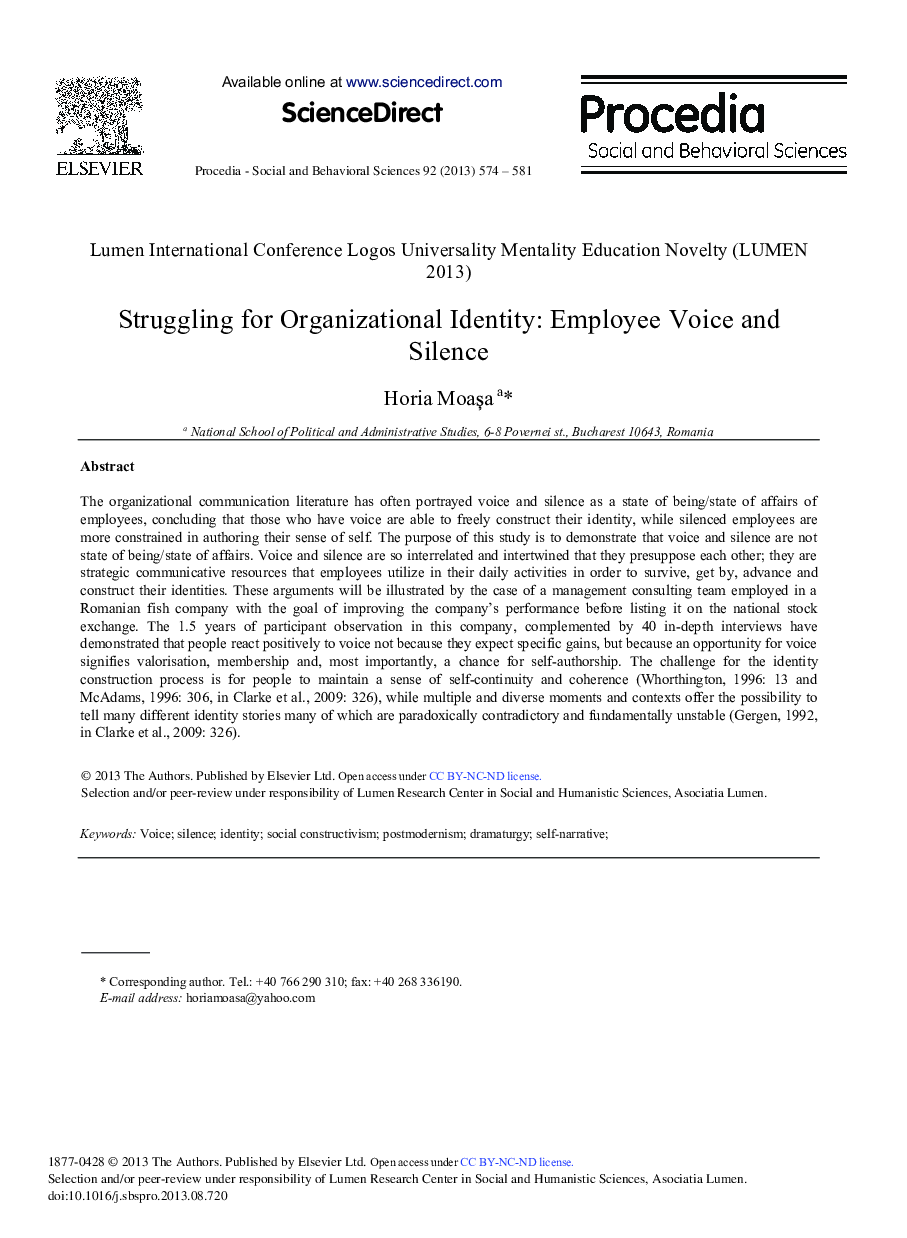| کد مقاله | کد نشریه | سال انتشار | مقاله انگلیسی | نسخه تمام متن |
|---|---|---|---|---|
| 1117976 | 1488467 | 2013 | 8 صفحه PDF | دانلود رایگان |

The organizational communication literature has often portrayed voice and silence as a state of being/state of affairs of employees, concluding that those who have voice are able to freely construct their identity, while silenced employees are more constrained in authoring their sense of self. The purpose of this study is to demonstrate that voice and silence are not state of being/state of affairs. Voice and silence are so interrelated and intertwined that they presuppose each other; they are strategic communicative resources that employees utilize in their daily activities in order to survive, get by, advance and construct their identities. These arguments will be illustrated by the case of a management consulting team employed in a Romanian fish company with the goal of improving the company's performance before listing it on the national stock exchange. The 1.5 years of participant observation in this company, complemented by 40 in-depth interviews have demonstrated that people react positively to voice not because they expect specific gains, but because an opportunity for voice signifies valorisation, membership and, most importantly, a chance for self-authorship. The challenge for the identity construction process is for people to maintain a sense of self-continuity and coherence (Whorthington, 1996: 13 and McAdams, 1996: 306, in Clarke et al., 2009, : 326), while multiple and diverse moments and contexts offer the possibility to tell many different identity stories many of which are paradoxically contradictory and fundamentally unstable (Gergen, 1992, in Clarke et al., 2009: 326).
Journal: Procedia - Social and Behavioral Sciences - Volume 92, 10 October 2013, Pages 574-581